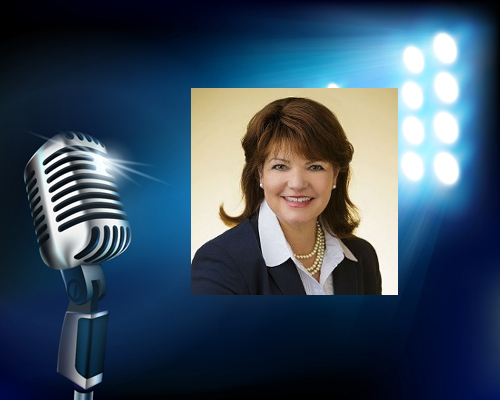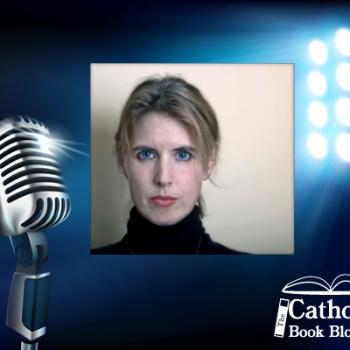Kathleen Beckman, L.H.S., is the Co-founder and President of the Foundation of Prayer for Priests (www.foundationforpriests.org), an international apostolate at the service of the Congregation for the Clergy for the sanctification of priests and spiritual maternity.
The author of several books on prayer and sacraments, she has served the Church for twenty-five years as an international Catholic evangelist, retreat director, radio host, Ignatian certified spiritual director, and a writer for Catholic Exchange.
Often featured on EWTN TV and radio, Kathleen hosts the weekly program “Living Eucharist” which airs internationally on Radio Maria.
Since 1992, she has served in leadership for Magnificat, A Ministry to Catholic Women an international Marian apostolate for the evangelization for women. Since 2000, she has served priests in the Church’s deliverance and exorcism ministry. Since 2013, she is a facilitator and board member for the Pope Leo XIII Institute, a school for priests.
In 2014 Sophia Institute Press published her book, Praying for Priests: A Mission for the New Evangelization with a Foreword by Fr. Mitch Pacwa, S.J. In 2015 Sophia Press commissioned her to write their Jubilee Year of Mercy book, God’s Healing Mercy with a Foreword and Imprimatur by Most Reverend Kevin Vann, Bishop of Orange.
A wife, mother, business-owner, her education is in medical administration. Kathleen’s personal testimony includes the story of God’s triumph over evil as Christ led her to forgive the killer of a family member. In her words, “The Eucharist is the heart of my life.”
PETE: Why is this Jubilee Year of Mercy declared by Pope Francis so important for the times we live in?
KATHLEEN BECKMAN: Throughout the book I aim to highlight the relevancy of divine mercy for our particular, challenging time. It can avert wars. It can form saints. Considered are rays of mercy for individuals, families, friends, enemies, the poor, sick, dying, clergy, laity, vocations, marriages, the unborn, and people with diabolical suffering. The final chapter considers healing the culture through the works of mercy.
Thirty years have passed since St. John Paul II wrote his encyclical, “Dives in Misericordia” or “Rich in Mercy”. In this encyclical the Pope insisted that Divine Mercy is not only the answer to the many ills of humanity today but the very mission of the Church, and each of her members is to be an instrument of Divine Mercy to all we encounter. He stated: “Modern man often anxiously wonders about the solution to the terrible tensions which have built up in the world and which entangle humanity.”
Pope Francis called for a Year of Mercy, writing: “Mercy is the very foundation of the Church’s life. It is time to return to the basics and to bear the weaknesses and struggles of our brothers and sisters. Mercy is the force that reawakens us to new life and instills in us the courage to look to the future with hope” (Misericordiae Vultus, 10).
We cry out to the Lord in the humble words of the publican, “God, be merciful to me a sinner” (Luke 18:13) while we trust, “He forgives all your iniquity, he heals all your diseases, he redeems your life from the pit, he crowns you with mercy and compassion” (cf. Ps. 103:3-4).
We should be filled with gratitude to our Holy Father for convoking this extraordinary jubilee, a time of grace for the Church and world. If we are docile to the Holy Spirit, we can become more transfigured into the likeness of Jesus Christ, the face of the Father of Mercy. We aim to live the jubilee theme “Merciful like the Father” to cultivate merciful discipleship. This year is full of potential for great good.
PETE: How can your new book “God’s Healing Mercy” be used by people during this jubilee year?
KATHLEEN BECKMAN:I intended that a person not only read about God’s healing mercy, but also encounter Jesus of Mercy within the pages. The book focuses on the healing power of divine mercy based on scripture and the lives of several saints. The book is formatted for use as a personal or group reflection or retreat. It features scriptural exercises at the end of each chapter along with a saint “profile in mercy” so readers are inspired to become vessels of mercy. Many dioceses and parishes are using the book for Year of Mercy retreats or study groups. We are delighted that Archbishop Chaput of Philadelphia recommends the book as a resource on their diocesan website. Individuals can use the book, especially in the silence of Eucharistic Adoration to pray for needed healing. For example, when I was traumatized by the murder of my loved one, the Holy Spirit prompted me to seek healing for my wound so that I did not project it onto His Body, the Church. That healing came through forgiving the murderer, praying for him. Being “merciful like the Father” is personal for my family and me.
PETE: What benefits can readers receive by putting into action some of the lessons from your book?
KATHLEEN BECKMAN:It is my hope to inspire believers to have great faith and to pray for needed miracles of healing since, in my extensive missionary travels, I am amazed by the merciful love of God who tenderly heals the wounds of the heart and of the body. God is omnipotent—we can pray for big graces. In the book, I tell the story a young priest friend whose leg was going to be amputated due to trauma from a tragic motorcycle accident and a wound that would not heal. The night before the surgery, a parishioner brought him a vial of St. Andre Bessette oil from the Oratory of St. Joseph in Canada. Father poured the oil onto the wound, and asked St. Andre to help save his leg. The next morning, the doctor found the leg completely healed with no need for amputation. In the book, most of the focus is on interior healing of the heart, forgiveness and conversion. The more precise answer to your inquiry is that a reader would put forgiveness into action and cultivate a merciful heart like Christ who forgave us first. I examine forgiveness from every angle because I personally struggle with it. A strong case is made for riding self of the poison of unforgiveness.
PETE: While you conducted your research were there any particular stories of mercy that jumped out at you?
KATHLEEN BECKMAN:Several saint stories of mercy touched my heart—St. Maria Goretti’s forgiveness for her murderer, St. John Paul’s mercy for his would-be assassin, St. Gianna Mola’s merciful love that moved her to lay down her life so that her baby could live, Mother Teresa’s mercy for the poor, etc. But one of the most inspiring testimonies I discovered was that of Cardinal Francis Xavier Nguyen, a Vietnam prisoner of war. For example he shares, “It was very hard for my guards to understand when I spoke about loving our enemies, reconciliation and forgiveness. “Do you really love us?” “Yes, I really love you.” “Even when we cause you pain? When you suffer because you’re in prison without trial?” “Look at all the years we’ve spent together. Of course, I love you!” “And when you get out, will you tell your people to find us and beat us and hurt our families?” “I’ll continue to love you even if you wish to kill me.” “But why?” “Because Jesus taught us to love always; if we don’t, we are no longer worthy to be called Christians.” His is a powerful story that makes a very strong case for the healing freedom that comes from forgiveness for those who trespass against us.
PETE: Who is your favorite saint of mercy and why?
KATHLEEN BECKMAN:My favorite saint of mercy is St. John Paul II. I had the grace to see him several times in Rome and he had a profound impact on me. When I encountered him, I felt I was encountering the Lord Jesus. I studied and prayed with his writings, especially his encyclicals “Ecclesia de Eucharistia” and “Dives in Misericordia”. Before the Feast of Divine Mercy was officially declared and before St. Faustina was canonized, Pope John Paul II lived and proclaimed the infinite mercy of God. While researching for the book, I discovered a new story about the seminarian Karol Wojtyla and how he saved the life of a young girl who escaped from Auschwitz. This provides the final “profile in mercy” in the book. The pontificate of St. John Paul II brought about my re-version to the faith in 1990. Thanks to Pope John Paul II, we have the sublime gift of the Diary of St. Faustina, which has been pivotal to my prayer life.
PETE: Time for my signature ending question. This is a blog about books. What books are currently on your bookshelf to read?
KATHLEEN BECKMAN:In the queue is a powerful book that I read twenty years ago and aim to re-read, “True Devotion to the Holy Spirit” by Archbishop Luis M. Martinez. I plan to finish reading Dr. Mary Healy’s excellent book, “Healing: Bringing the Gift of God’s Mercy to the World” and then start Cardinal Wuerl’s new book, “To the Martyrs”.
___________________________________________________________________________________________
Other books by this author:












